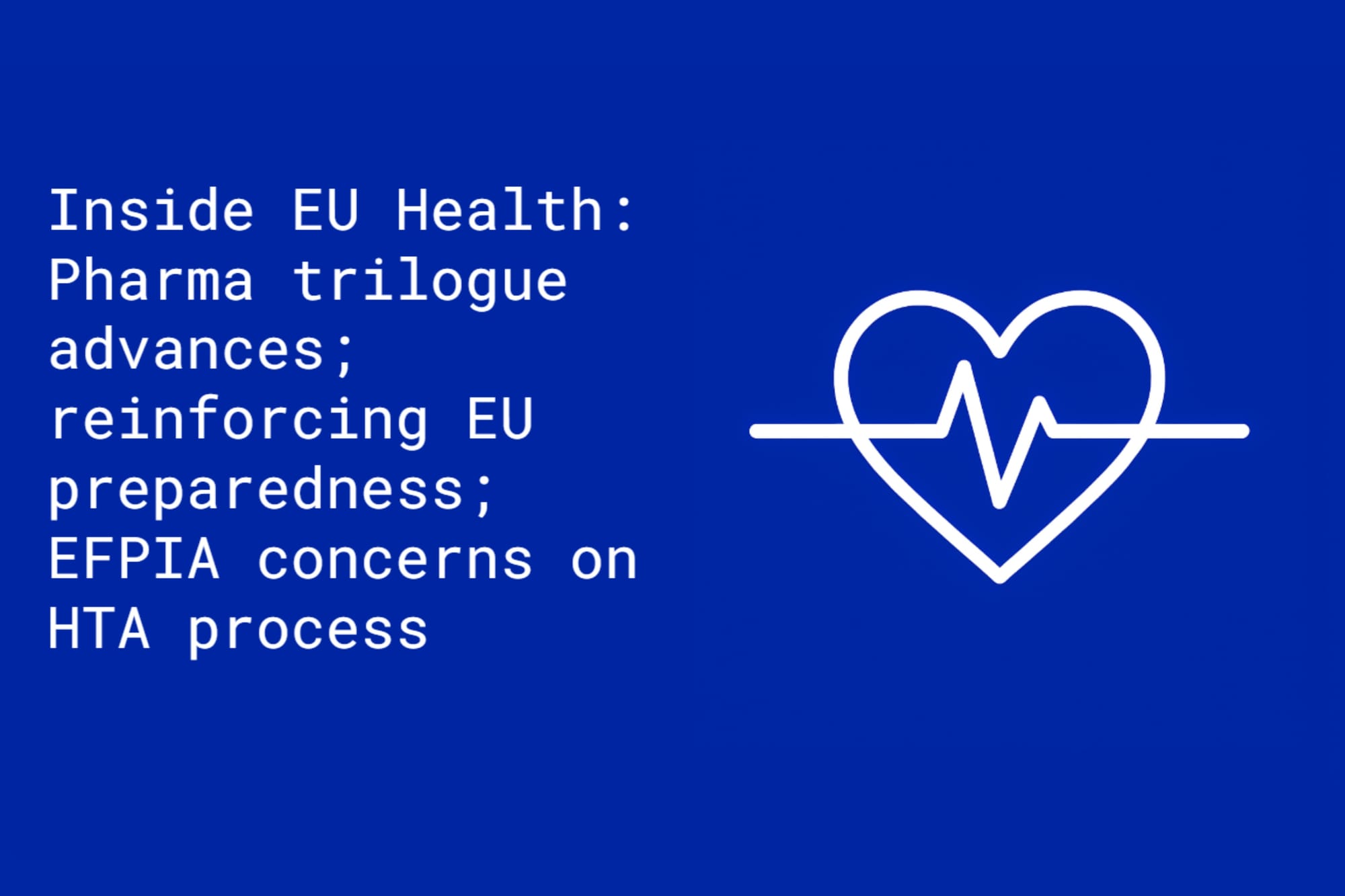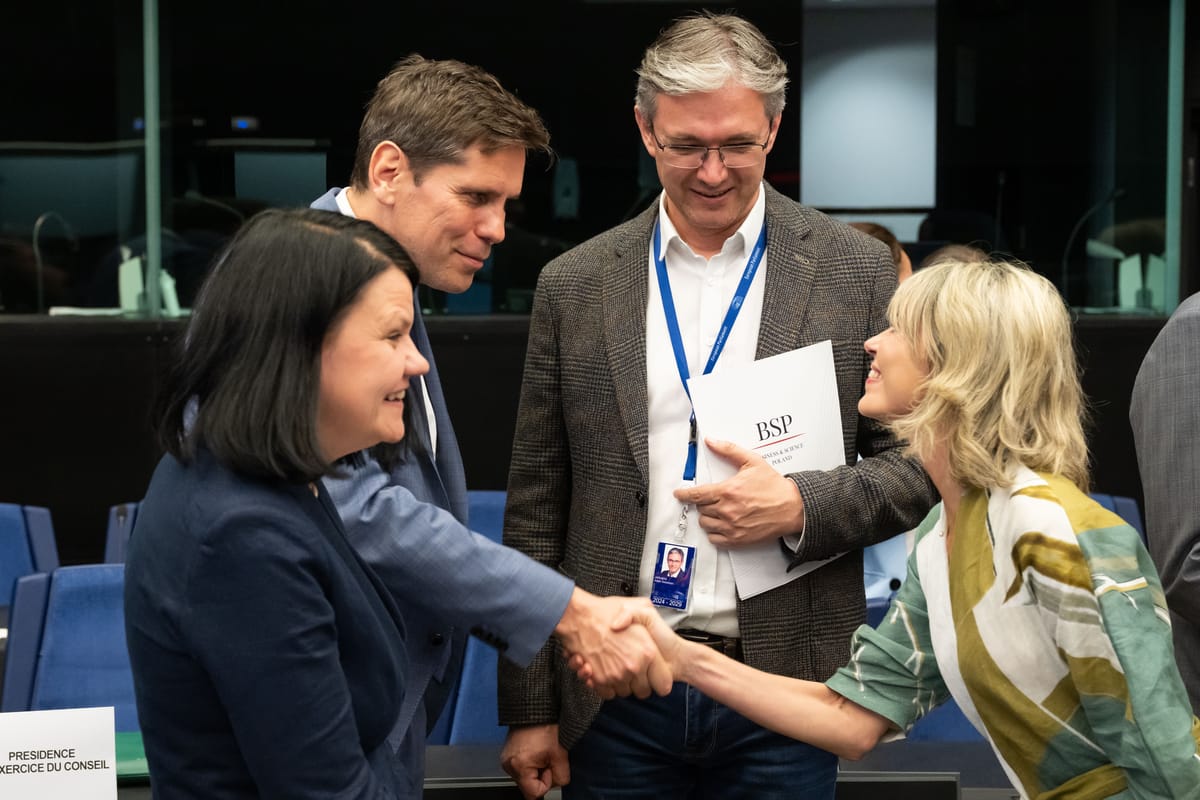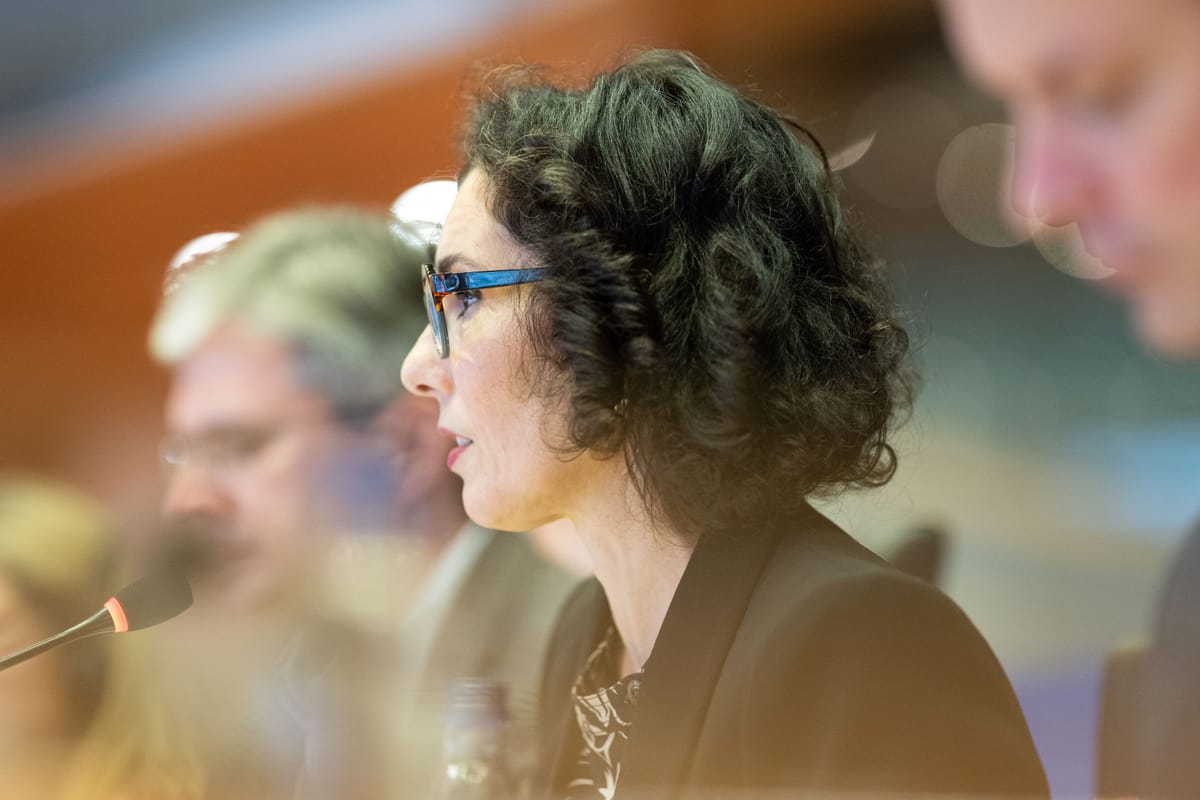Inside EU Health: Pharma trilogue advances; reinforcing EU preparedness; EFPIA concerns on HTA process
Pharma trilogue talks advance; reinforcing EU preparedness; and EFPIA raises concerns on HTA process

Pharma trilogue talks advance
After months of painstaking negotiations, the long-debated Pharma Package — the EU’s sweeping overhaul of pharmaceutical legislation proposed in 2023 — appears to be nearing completion. The Danish Presidency, steering the talks, said after the third trilogue that “we are progressing very well” and that a “preliminary compromise on antimicrobials (AMR)” is within reach.
The discussions tackled major political sticking points, including the Bolar exemption, regulatory protection periods, and access provisions. Denmark believes that with some additional technical work, a final agreement could be sealed at a “jumbo” trilogue set for 10 December.

Reinforcing EU preparedness
MEPs from the Environment and Public Health Committees pressed Commissioner Hadja Lahbib on plans to strengthen the EU Civil Protection Mechanism (UCPM).
Commissioner Lahbib said recent crises had exposed the limits of current systems, stressing that Europe “cannot afford to just react.” The revamped UCPM will integrate civil and health emergency preparedness, with part of its funding drawn from the EU4Health programme.

EFPIA raises concerns on HTA process
The European Federation of Pharmaceutical Industries and Associations (EFPIA) has raised concerns over how the new EU Health Technology Assessment (HTA) system is being implemented, following recent simulation exercises.
The application of Joint Clinical Assessments (JCA) under the new rules began in January 2025 for oncology medicines and advanced therapies.
In a blog EFPIA warns that the current approach to defining PICO frameworks - Population, Intervention, Comparator(s), and Outcomes - lacks transparency, predictability, and scientific consistency.
The association highlights a number of issues, including: unclear methods, an opaque consolidation process with limited industry engagement, and the rist that JCAs may lose relevance if they provide “an overwhelming volume of data” or, conversely, “insufficient evidence” when the evidence standard cannot realistically be met.


